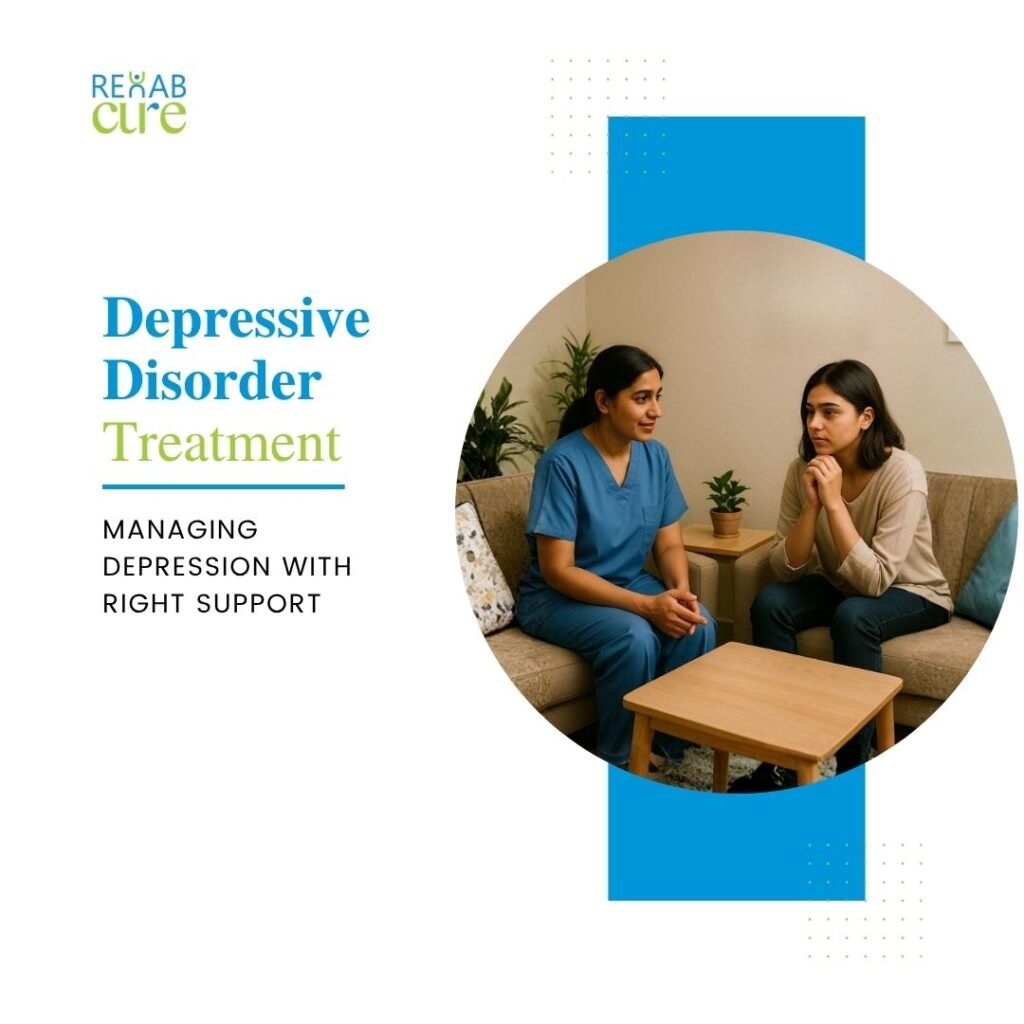
Imagine waking up each day with a fog that will not lift. You feel sad, not just for a moment, but deep into your bones. Tasks that formerly sounded simple now loom like mountains. This is the reality for millions dealing with depressive disorder complaints, a common internal health issue that touches lives far and wide. It affects how you suppose, feel, and handle diurnal routines, from work to time with loved ones.
Depressive disorder strikes about 264 million people around the world, according to the World Health Organization. Women face advanced pitfalls, and they frequently occur during tough life stages like youth or after big changes. But then the good news is it’s treatable. In this composition, we’ll break down what depressive complaint means, its signs, what causes it, and a real way to feel better. You will get a clear perception and tips to take charge of your internal health.

Table of Contents
What is a Depressive Disorder complaint?
A depressive complaint goes beyond a bad day or temporary blues. It’s a real medical condition that changes your mood and energy for weeks or months. Croakers use the DSM-5, a crucial companion from the American Psychiatric Association, to spot it. This book lists clear rules for opinion, like having sad passions most days for at least two weeks. Finding out beforehand helps because it stops the effects from getting worse.
Think of it like a storm pall that sticks around, blocking the sun. Normal sadness fades after a loss or reversal. But the depressive complaint lingers and disrupts life. Getting it beforehand opens doors to help.
Defining Depressive Complaint and Its Types:
Major depressive disorder, or MDD, is the most common type. It brings violent lows that last at least two weeks. You might feel hopeless and lose joy in the effects you love. Also, there is a patient depressive complaint, also called dysthymia. This one simmers for two times or further, like a low-grade fever that drains you sluggishly.
Bipolar depression mixes deep lows with high moods, part of the bipolar disorder. Seasonal affective disorder hits in downtime, tied to lower sun. The DSM-5 outlines symptoms for each, such as changes in sleep or weight. Knowing these types matters. It guides the right care.
How Depressive Complaint Differs from Everyday Blues:
Every day, sadness comes and goes, frequently linked to clear events. It might last hours or days. Depressive complaints stick around, generally for two weeks or longer. The passions hit harder, making it tough to get out of bed or focus at work.
Public health reports show this difference easily. A brief depression after a bifurcation is normal. But if it impairs your job, it could go further. Intensity matters too. Normal blues do not frequently lead to detrimental studies.
Symptoms and Signs of Depressive complaint
Signs of depressive complaints show up in passions, body, and studies. They vary from person to person. Some feel it all at once; others notice bits over time. Beforehand, signs can look like other issues, like thyroid problems. That is why shadowing helps. You might not see it in yourself right away. Musketeers could spot changes first. Pay attention to patterns.
Emotional and Behavioral Symptoms
Sadness that will not quit is a big bone. It feels heavy, like carrying a pack full of jewels. Loss of interest, called anhedonia, steals fun from pursuits or laughs with musketeers. Perversity creeps in, making small effects blow up. You pull away from people, skipping calls or gatherings. The American Psychological Association notes these as core signs. Actions shift, too. Some eat more or less; others sleep odd hours. Pullout signals trouble brewing. Keep a journal. Jot down moods daily.

Physical and Cognitive instantiations
Your body joins the fight. Fatigue hits hard, like running on empty. Sleep might flee or trap you in bed all day. Appetite swings lead to weight changes, up or down. Studies fog up. attention slips, making work a chore. opinions feel insurmountable. Worse, suicidal ideas can whisper. However, get help now if they do. The National Institute of Mental Health stresses this. These signs drain energy. They mimic the flu occasionally but last longer.
When Symptoms Gesture a Need for Help:
Watch for red flags. However, raise the alarm if symptoms wreck your routine for over two weeks. Severe lows or detrimental studies demand quick action. Diurnal life grinds to a halt—missing work, ignoring self-care. Do not stay. Call the public self-murder prevention lifeline at 988. It’s free, round-the-clock support. Or text HOME to 741741 for emergency conversation. These ways save lives. Help is out there. Taking it shows strength.
Causes and Threat Factors of Depressive Complaint:
No single cause sparks depressive disorder complaints. It’s a blend of body, life events, and mind. Research from places like the NIMH points to this mix. Biology sets the stage; it triggers the fire. Genes play a part, but terrain shapes it. Life adds layers. Understanding helps or manages.
